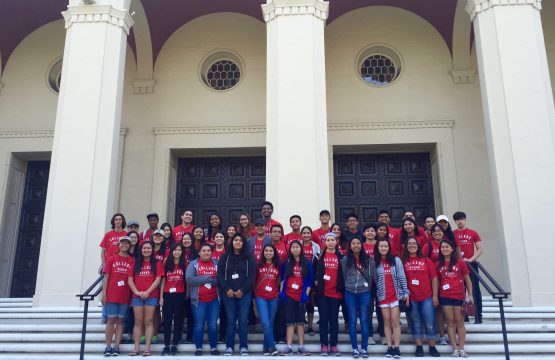How STEM Studio helps teachers approach learning in a new way
Summer is a time when many teachers create and develop lesson plans for the following school year. The Tiger Woods Learning Center provided an opportunity for teachers to approach learning in a new way with STEM Studio. Many of the takeaways from the weeklong event can be summed up by the engineering process: Ask, Imagine, Plan, Create and Improve.
ASK
Question, question, question! Project-Based Learning (PBL) focuses on a driving question, one that can’t be answered with a quick search in Google. Teachers are shown the power of the question, not the answer. Too often students ask a question and just want the answer; however, when teachers respond with a question, it allows the opportunity for students to ponder and draw their own conclusions.
IMAGINE
“I challenge you to challenge the system, and to look beyond all the boundaries, and to be curious.” -Easton LaChappelle, a 19-year-old inventor from a small town in Colorado who questioned the outlandish cost of prosthetic arms. The result? He created one for $350.
Teachers were encouraged to think like Easton, being given the challenge to create a hand that could perform the simple task of picking up a ball and moving it to a different location. Through this activity, teachers are reminded to listen to and foster their students’ imaginations, no matter how far-fetched they may seem. Easton is a good reminder that a student’s curiosity is the gateway to his/her passion.

PLAN
Planning seems like a no-brainer when it comes to the engineering process, but you’d be surprised how often teachers don’t allow time for students to devise a plan and map it out on paper. Or we, as teachers, too often provide an example, which stifles innovation. Given the chance to plan and research, students can better put their imagination to use. The Balsa Bridge challenge brought this to light when teachers were given significant time to explore different designs and sketch out their work on graph paper.
CREATE
This is probably the most obvious step in the engineering and design process, but it is one that takes a lot of work to get to. Teachers learned this through the balloon car racer design challenge. There was no template given. There were no examples to follow. Complicating matters further was the fact that limited materials were available, so jumping right into the creation step could leave the designer wishing he/she had planned better. Creating something never before imagined is the composition of significant communication with others, prototyping with cost-efficient materials and repeated tests with prototypes. This results in the best possible plan given the limited time available.

IMPROVE
Life is about improving, so teaching students how to improve is paramount. After reaching a goal or completing a task, it is essential to reflect and see what you can do better. During STEM Studio, educators worked on several tasks with the potential for improvement time and time again. Balloon car racers was one of these challenges. Following each test of the vehicle, teachers made modifications to increase distance and control, or even scrapped the entire design to create a new concept. Most models went through several iterations in order to become race-ready. Providing students ample time to improve work is essential in a classroom. This gives them an appreciation of how if at first you don’t succeed, you can always try again.
SUMMARY
The engineering process of STEM Studio provides learning opportunities for both teachers and their students. Implementing the Ask, Imagine, Plan, Create and Improve concepts in the classroom would significantly benefit any educator and drive his/her students to further excel. The Tiger Woods Learning Center STEM Studio is highly recommended for all teachers who wish to take their curriculum to a whole new level.
Learn more about our newly launched STEM Studio program for teachers.
Champions of the unexpected for 20 years.


